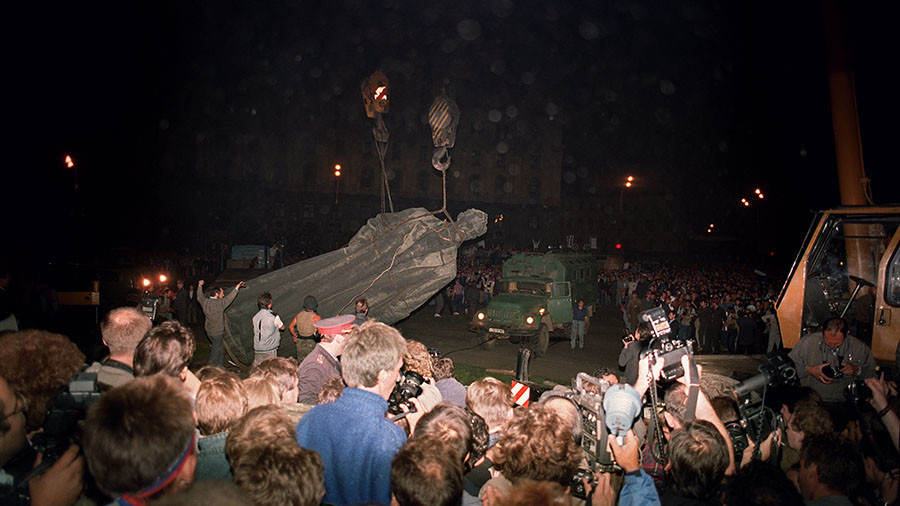Communists ask Putin to bring back monument to KGB founder Dzerzhinsky

In a letter to the president, Zyuganov noted the “decisive role” that Dzerzhinsky played in the establishment of the Bolshevik state security agency, Cheka, which later became the State Security Committee, or KGB. This was subsequently replaced by the modern-day Federal Security Service (FSB).
“This body was the basis for the state security system, which to this day remains one of the key elements of Russian statehood. We are convinced that the return of the monument to the man who had become a symbol of honesty and selflessness would contribute to the formation of decent moral beacons in our society,” the letter read, according to Kommersant daily.
Felix Dzerzhinsky died in 1926 and the Soviet authorities renamed cities, streets and other landmarks in his honor. Moscow’s Lubyanka Square, where the KGB headquarters was located, was renamed after Dzerzhinsky in 1926. The monument dedicated to him was erected in the center of the square in 1958.
In 1991, after the breakup of the Soviet Union and the election of the first Russian President Boris Yeltsin, the name of the square reverted to Lubyanka, and the monument to Dzerzhinsky was removed. Shortly thereafter, a Russian group specializing in the history of Stalinist purges, the Memorial Society, installed its own monument in the center of the square to honor the victims of Soviet-era repression.
The Communist Party of the Russian Federation, which uses a lot of Soviet-era images and symbols in its propaganda, has always lauded Dzerzhinsky as a model statesman and advocated for the return of the monument. In mid-2015, Communists collected enough supporters’ signatures to prompt a referendum on the subject in Moscow, but eventually decided not to submit them to the City Elections Commission, citing the excessive cost of the poll.
However, an independent polling company, Levada, conducted a survey on the possible return of the Dzerzhinsky monument to Lubyanka Square in 2015. This found that 51 percent of Moscow residents supported the move, with 25 percent against it, and 24 percent saying that they had no firm position on the subject.










